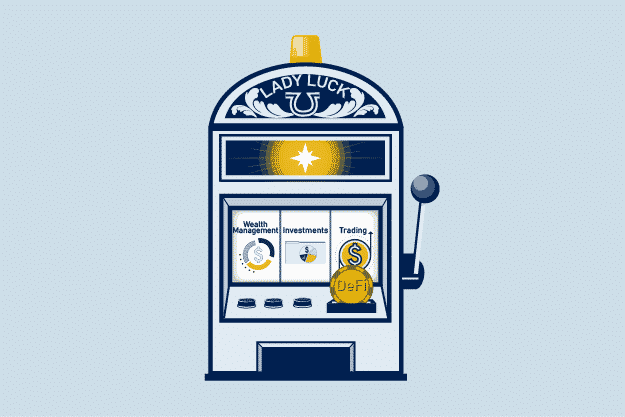From blockchain technology and cryptocurrency, a new concept and offering is gaining traction, and it’s one that aims to challenge traditional financial intermediaries including brokerages, exchanges and banks. That new type of finance is known as DeFi, decentralized finance.
Understanding Decentralized Finance
DeFi builds smart contracts using the blockchain idea of decentralized ledgers. These contracts actually function more like computer programming that can carry out instructions to administer or perform transactions in savings, loans, trading, insurance and other financial instruments. These smart contracts work on blockchains, notably Ethereum, the platform founded in 2015.
The idea of Decentralized Finance first emerged in late 2017, but the pandemic increased interest in it and use of it starting in May 2020. Unlike bitcoin or other cryptocurrencies, DeFi tokens are not meant to be investments or traded for their intrinsic value. DeFi tokens are akin to decentralized apps, or dapps, which recreate financial services functions.
Turning to dapps rather than centralized financial services promises several advantages, including programmability, interoperability, transparency, permission-less access and self-custody, as well as global reach and flexible user experiences. Before you rush to drop all your traditional financial operations and convert all of them to DeFi, there are a few things to consider.
Things to consider with DeFi
Trying to conduct transfers between different blockchain platforms requires interoperability, and often these platforms are not compatible because of their rivalries with each other. Ethereum is a market leader and still growing, but Eos is also a big hub for dapps, to name just one. Aside from these, there are numerous other platforms and providers now in the DeFi space, including Compound, Uniswap, Synthetix, Curve and PoolTogether. Buyers should beware on these, however, as Synthetix is attempting to create “synthetic” versions of gold, silver, cryptocurrencies and the euro, while PoolTogether touts a proposition it calls “no-loss savings games,” in which a random winner receives the interest for all the funds invested by many participants. These seem far from more reputable and acceptable financial services functions.
On the other hand, Compound, along with Dharma, dYdX and others, feature borrowing and lending functions, and USD Coin, backed by Coinbase, promises a “price stable means of value exchange.”
Still, prospective users or investors should also understand that the advantages that DeFi offers from eliminating bureaucracy and hurdles to participation in financial services – even for banking, insurance and the like — can also come with less oversight and protection. Markets are waiting to see the effect of Ethereum’s big expansion and upgrade, launched in early December 2020 with conversions still to be implemented and more phases to come in the next couple years.
As blockchain, and by extension, Decentralized Finance, continue to grow, they will open up opportunities, but as with any new field, due diligence is necessary.


